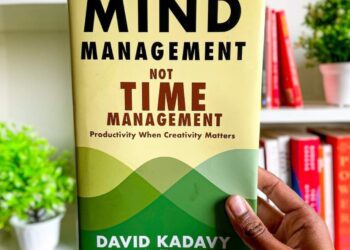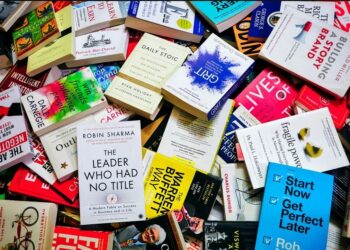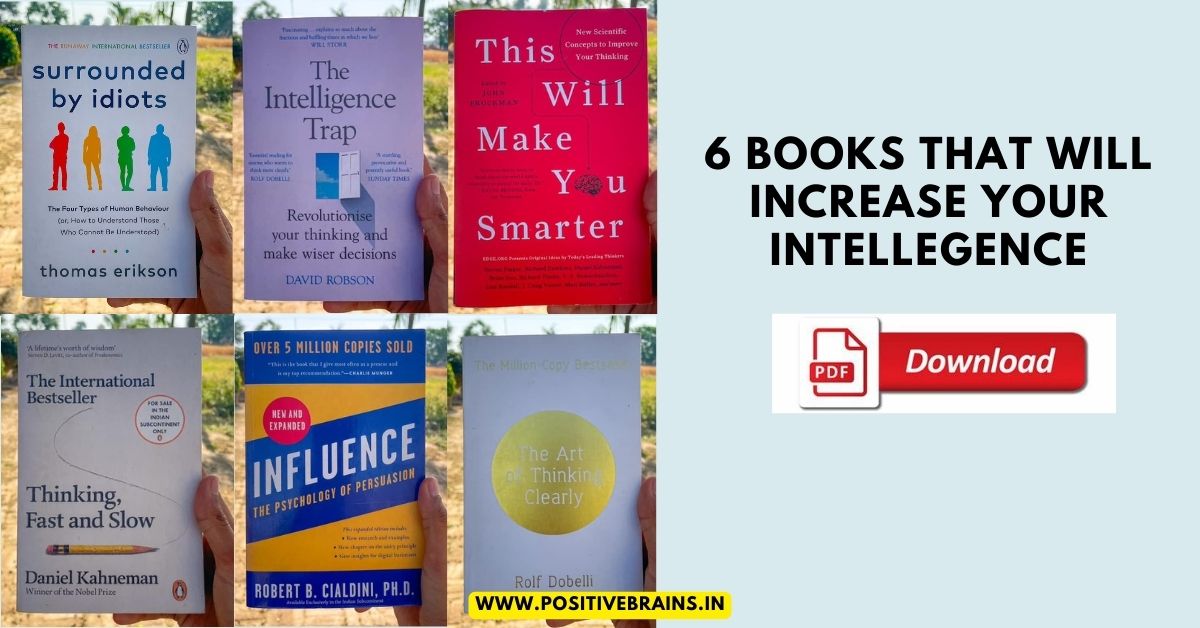
Surrounded By Idiots
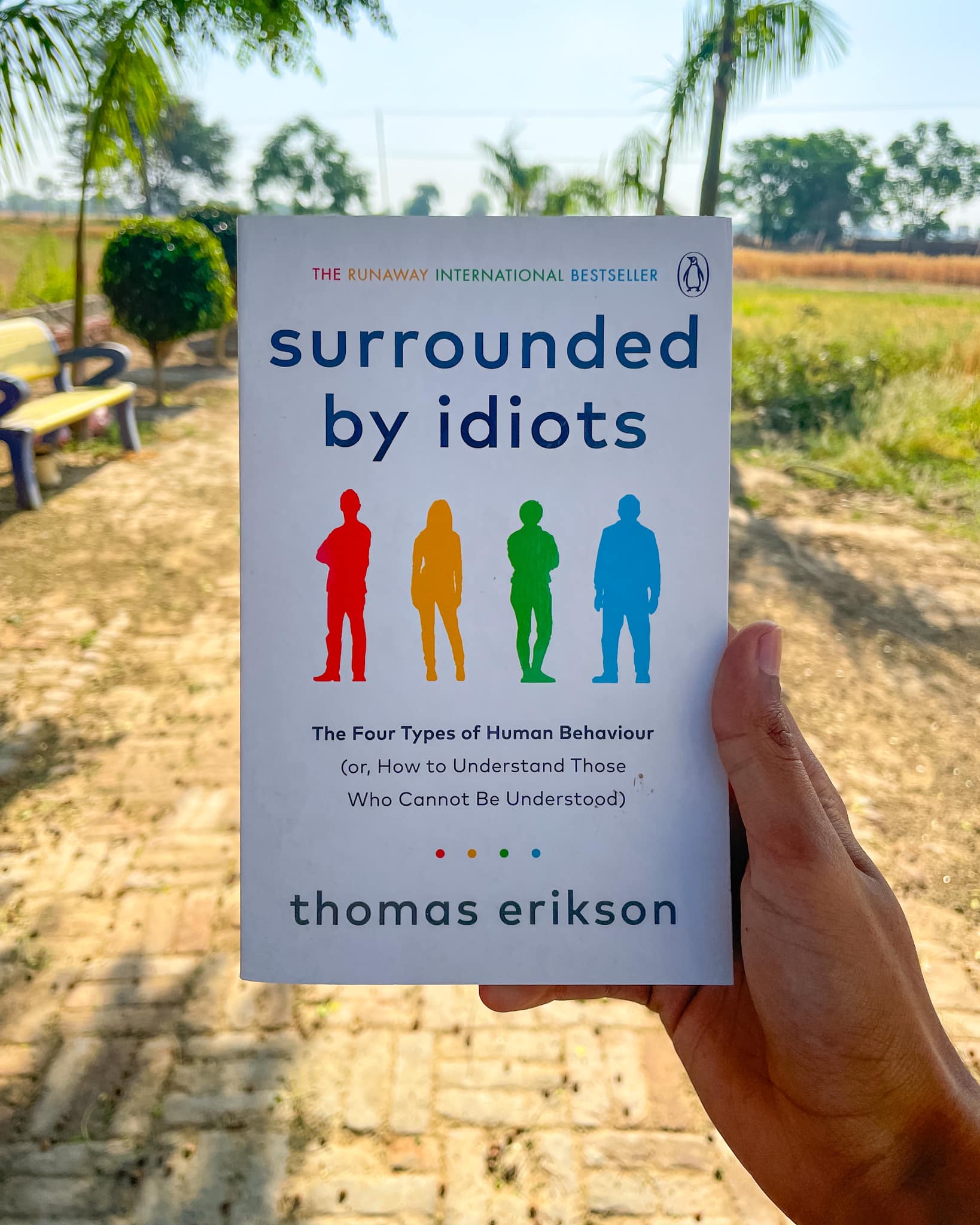
Surrounded by Idiots by Thomas Erikson: In this captivating book, Thomas Erikson introduces the DISC model, a powerful framework for understanding human behavior. By categorizing people into four distinct personality types—Dominance, Influence, Steadiness, and Conscientiousness—Erikson sheds light on why we clash with certain individuals and effortlessly connect with others.
- Dominance (D): These individuals are assertive, results-oriented, and often take charge. They thrive on challenges and seek control.
- Influence (I): The social butterflies! Influencers are expressive, enthusiastic, and love networking. They’re the life of the party.
- Steadiness (S): Steady folks are reliable, patient, and value stability. They’re great listeners and team players.
- Conscientiousness (C): Detail-oriented and analytical, conscientious individuals prioritize accuracy and quality. They’re the planners.
By recognizing these personality types, you’ll navigate relationships, communication, and collaboration more effectively. Whether you’re a manager, team member, or simply curious about human dynamics, Surrounded by Idiots offers practical insights to decode the people around you.
For access to the audio book or to download the PDF version, please click the button below.
The Intelegence Trap
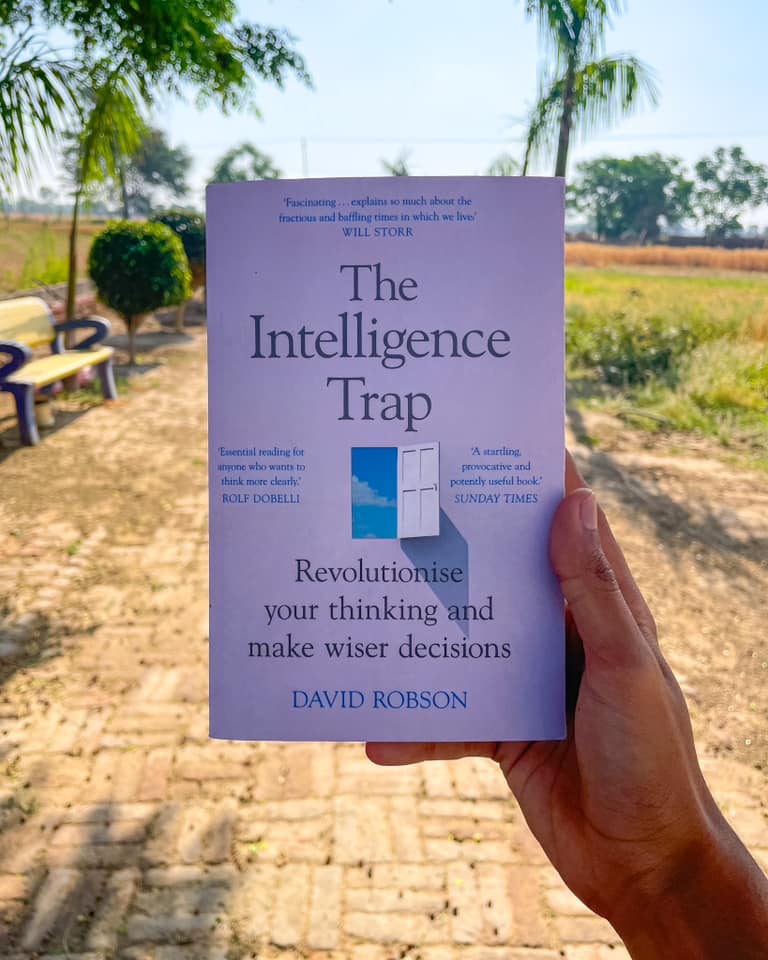
The Intelligence Trap: Why Smart People Make Dumb Mistakes by David Robson: In this eye-opening book, Robson delves into the paradox that even highly intelligent individuals are susceptible to errors. Here are the key takeaways:
- Strategic Ignorance: Smart people often fall into the trap of thinking they know everything. However, deliberately embracing ignorance can lead to better decision-making. By acknowledging what we don’t know, we become more open-minded and adaptable.
- Meta-Forgetfulness: Our brains selectively forget information, especially when it contradicts our existing beliefs. Recognizing this tendency allows us to challenge our assumptions and learn from our mistakes.
- Functional Stupidity: Sometimes, being too clever can hinder us. Overthinking, overanalyzing, and excessive complexity can lead to poor outcomes. Simplicity and practicality often trump intellectual prowess.
Robson weaves together stories of historical blunders (including Thomas Edison’s missteps) and organizational failures (such as NASA, Nokia, and the FBI) to illustrate how intelligence can backfire. Drawing from timeless lessons by Benjamin Franklin, Richard Feynman, and Daniel Kahneman, he provides practical advice to avoid falling into the intelligence trap.
Whether you’re a curious thinker, a decision-maker, or simply intrigued by the quirks of the human mind, The Intelligence Trap offers valuable insights to enhance your cognitive toolkit.
For access to the audio book or to download the PDF version, please click the button below.
Thinking Fast and Slow

In this groundbreaking book, Kahneman—a Nobel laureate in economics—takes us on a captivating tour of the mind. He introduces us to two distinct systems of thinking:
- System 1: Fast, intuitive, and emotional. It operates automatically, relying on instincts and stereotypes. Examples of System 1 thinking include recognizing that an object is farther away than another, completing phrases, displaying disgust at gruesome images, and solving simple math problems.
- System 2: Slow, effortful, and logical. It engages conscious thought and deliberate reasoning. System 2 allows us to prepare for specific tasks, direct our attention, recognize complex patterns, and solve intricate problems.
Kahneman explores how these two systems shape our judgments and decision-making processes. Here are some key takeaways:
- Priming: Our brains are influenced by subtle cues (priming) that affect subsequent behavior. For instance, exposure to certain words or images can impact our choices without conscious awareness.
- Anchoring: We tend to rely heavily on initial information (anchors) when making decisions. Even irrelevant numbers can sway our judgment.
- Loss Aversion: People fear losses more than they value gains. This bias affects our choices, investments, and risk-taking behavior.
- Overconfidence: We often overestimate our abilities and the accuracy of our judgments. Recognizing this bias can lead to better decision-making.
- Prospect Theory: Kahneman’s groundbreaking work on how people evaluate potential gains and losses. Our perception of risk and reward isn’t always rational.
Through engaging anecdotes, experiments, and real-world examples, Thinking, Fast and Slow challenges our assumptions about rationality. It reveals the quirks and limitations of our minds, offering practical insights for anyone seeking to improve their thinking processes.
Whether you’re a curious thinker, a decision-maker, or simply intrigued by the complexities of human cognition, this book provides a rich tapestry of knowledge.
For access to the audio book or to download the PDF version, please click the button below.
This Will Make You Smarter
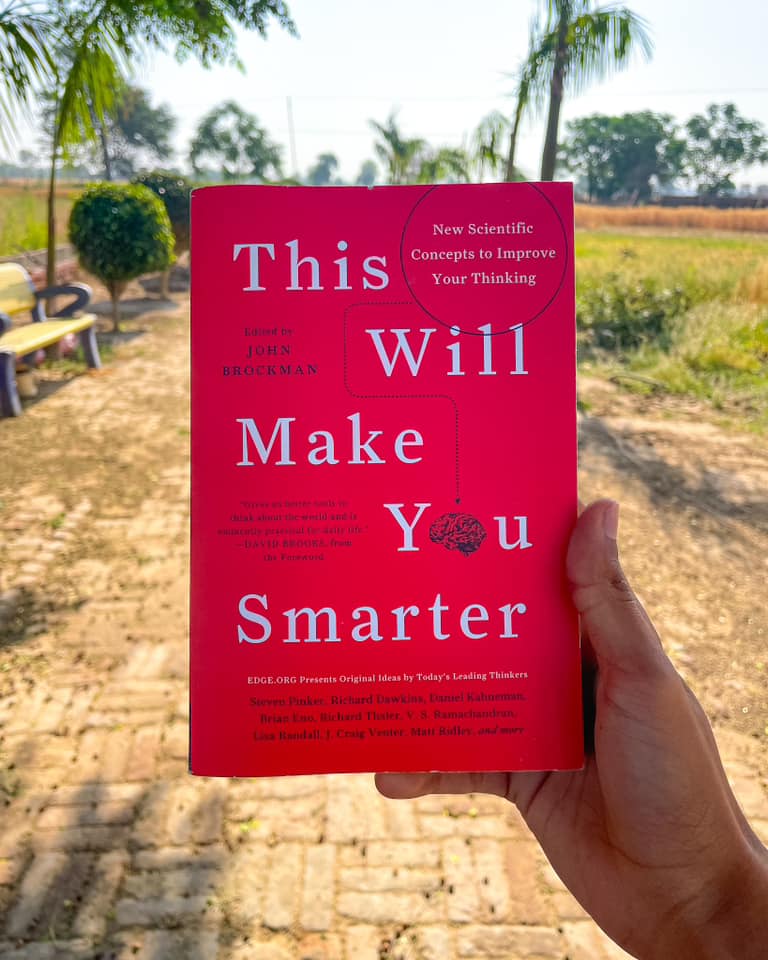
Edited by John Brockman, this compilation features insights from leading thinkers, scientists, and visionaries. Each contributor shares a single idea or concept that can expand our minds and enhance our understanding of the world. Here are some highlights:
- Antifragility: Nassim Nicholas Taleb introduces the concept of antifragility—the idea that some systems thrive and improve when exposed to stress, volatility, and randomness. Rather than merely being resilient, antifragile entities benefit from chaos.
- The Adjacent Possible: Stuart Kauffman discusses how innovation emerges from the “adjacent possible.” Progress occurs by exploring what’s feasible based on existing knowledge and resources. It’s like stepping through a door to discover new rooms.
- The Wisdom of Crowds: James Surowiecki explores collective intelligence. Contrary to the “wisdom of experts,” diverse groups often make better decisions. Crowdsourcing and collaborative problem-solving tap into this collective wisdom.
- The Flynn Effect: Psychologist James Flynn reveals that average IQ scores have been rising over generations—a phenomenon known as the Flynn Effect. This challenges assumptions about fixed intelligence and suggests that environmental factors play a crucial role.
- The Power of Constraints: Cognitive scientist Gary Marcus argues that constraints (such as rules, limitations, and boundaries) drive creativity. Constraints force us to think differently and find innovative solutions.
Whether you’re curious about cognitive enhancement, fascinated by scientific breakthroughs, or simply hungry for intellectual stimulation, This Will Make You Smarter offers a buffet of ideas to expand your mental horizons. 🌟
For access to the audio book or to download the PDF version, please click the button below.
Influence: The Psycology of Persuasion
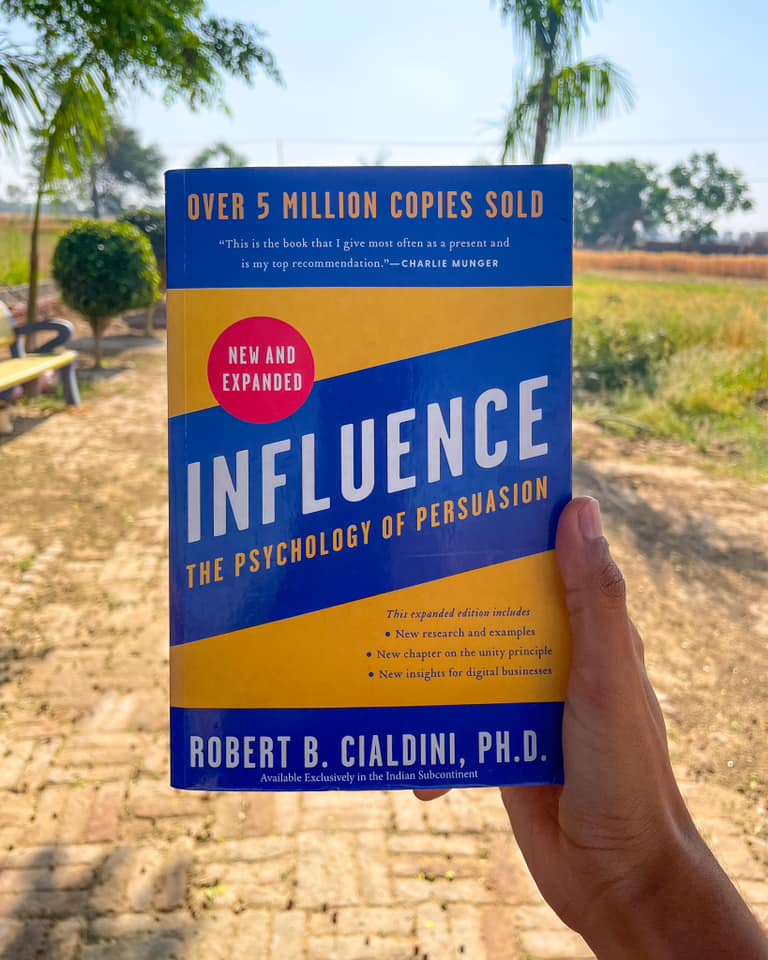
Influence: The Psychology of Persuasion: In this highly acclaimed bestseller, Dr. Cialdini—the seminal expert in the field of influence and persuasion—unveils the psychology behind why people say “yes.” Here’s what makes this book a must-read:
- Universal Principles: Cialdini introduces his six Universal Principles of Influence:
- Reciprocation: The art of giving to receive.
- Commitment and Consistency: Once committed, we strive to remain consistent.
- Social Proof: We look to others for cues on how to behave.
- Liking: People say yes to those they like.
- Authority: We follow experts and authority figures.
- Scarcity: Limited availability triggers action.
- Ethical Application: Cialdini emphasizes using these insights ethically—whether in business negotiations, marketing strategies, or everyday interactions. Learn how to influence others while maintaining integrity.
- Memorable Stories: Through relatable examples, Cialdini demystifies the science of persuasion. You’ll grasp the intricacies of these principles and wield them effectively.
- Defensive Strategies: Not only will you become a skilled persuader, but you’ll also learn how to defend yourself against unethical influence attempts. Understanding these principles empowers you.
Whether you’re a marketer, leader, salesperson, or curious thinker, Influence equips you with practical tools to move others in your direction. Dive into this treasure trove of knowledge and enhance your persuasive abilities!
For access to the audio book or to download the PDF version, please click the button below.
The Art of Thinking Clearly
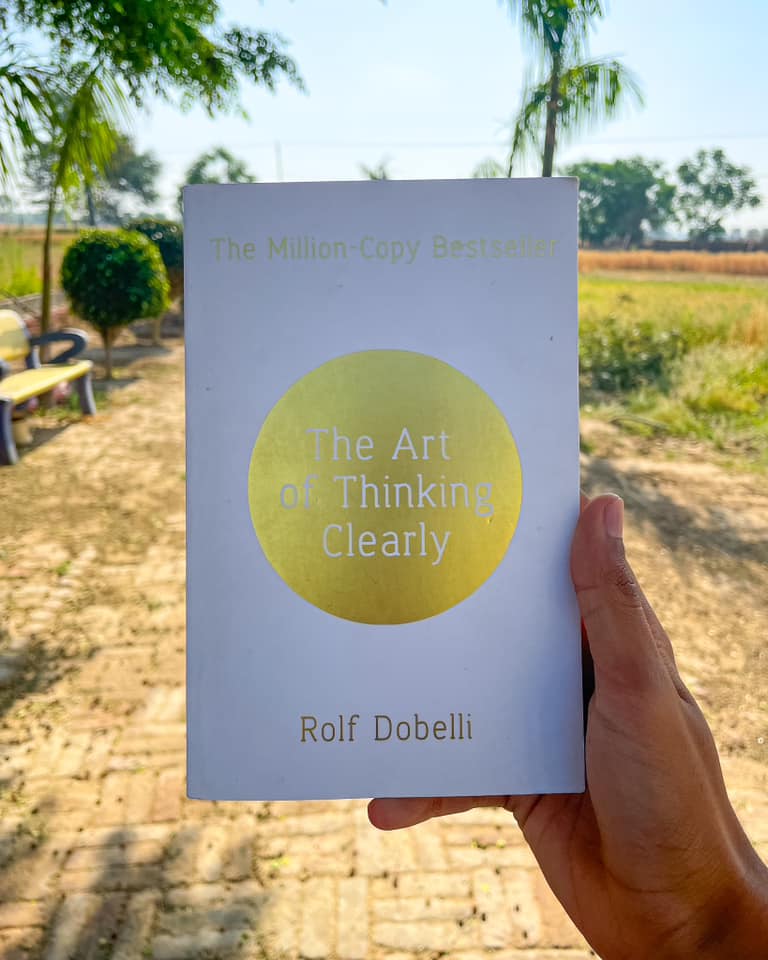
Explore The Art of Thinking Clearly: In this highly acclaimed bestseller, Rolf Dobelli—an astute Swiss author and businessman—unveils the intricacies of human reasoning. Here’s why this book is essential reading:
- 99 Short Chapters: Dobelli distills profound insights into 99 concise chapters, each addressing a common error of judgment. These bite-sized nuggets allow you to explore one cognitive bias at a time.
- Spotting Cognitive Biases: Have you ever:
- Invested time in something that, with hindsight, just wasn’t worth it?
- Overpaid in an eBay auction?
- Continued doing something you knew was bad for you?
- Sold stocks too late or too early?
- Taken credit for success but blamed failure on external circumstances?
- Backed the wrong horse?
- Practical Examples and Anecdotes: Dobelli weaves engaging prose with practical anecdotes. He dissects our flawed reasoning, revealing how envy, social distortions, and cognitive shortcuts lead us astray.
- Transform Decision-Making: Armed with this knowledge, you’ll transform your decision-making process—at work, at home, and every day. Whether you’re pondering investments, relationships, or life’s crossroads, The Art of Thinking Clearly empowers you to navigate the maze of biases and emerge wiser.
Dive into this indispensable book, and let its wisdom reshape the way you think.
For access to the audio book or to download the PDF version, please click the button below.








